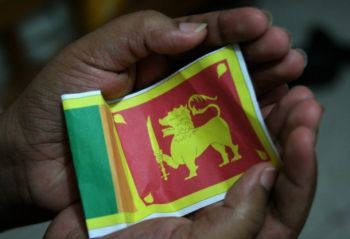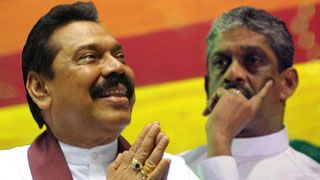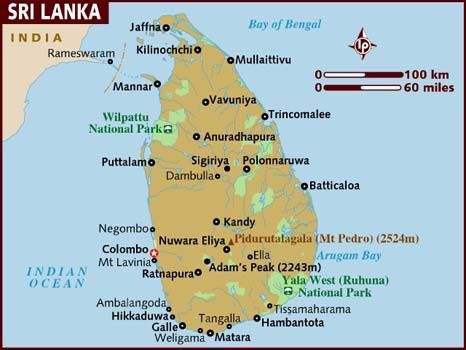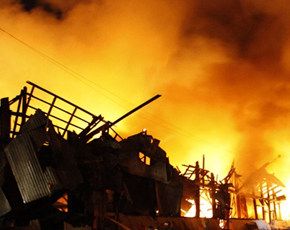
Publisher:
Bonnie King
CONTACT:
Newsroom@Salem-news.com
Advertising:
Adsales@Salem-news.com

~Truth~
~Justice~
~Peace~
TJP
Jul-10-2012 13:51

 TweetFollow @OregonNews
TweetFollow @OregonNews
Sri Lanka: Democratic Solutions, Undemocratic System
Basil Fernando Special to Salem-News.comSri Lanka: Seeking Democratic Solutions Within An Undemocratic Political System.
 Courtesy: groundviews.org |
(HONG KONG AHRC) - For many decades since 1978 there has been talk about many reforms. The basic justification for 17th Amendment to the Constitution was that it promised basic reforms with the view to enable working of the democratic process. There had also been suggestions for reforms to ensure the rights of minorities, particularly the Tamils. The 13th Amendment to the Constitution was an outcome of that debate. Then the latest is the recommendations of the commissions for the lessons learned (LLRC), which suggests several other reforms and this now has the backing of the resolution from the UN Human Rights Council.
The 17th Amendment, 13th Amendment and the recommendations of the LLRC are based on the assumption that there is a democratic political framework in Sri Lanka, which makes implementation of the reforms proposed by these documents possible. If this assumption is to be false, all the work and agitation for such implementation is surely based on a false assumption.
Is the political system of Sri Lanka a democratic one? This is the first question that should be considered if all the work and agitation for democratic reforms of the existing political system is not to go to waste. So, will our system qualify to be called a democratic system?
As the question is a very serious one we may perhaps rely on a respected authority by everyone in the field of constitutional law and philosophy to consider this question. John Rawls, in his Theory of Justice laid down a few very basic principles of a political system that may be called democratically just.

These principles are that such a society is a fair system of cooperation. The public institutions of such a society should provide for the possibility of a fair system of cooperation among all its members. Is Sri Lanka today a well ordered system of fair cooperation?
A further principle he advanced was that such a society is a well ordered society. A well ordered society is a society effectively regulated by a public conception of justice. In such a society everyone accepts, and knows that everyone else accepts, the very same political conception of justice. This implies that the society's basic structure is effectively regulated by a public conception of justice. All the main political and social institutions and the ways in which they hang together as one system of cooperation satisfy the principles of justice.
In a well ordered society the public conception of justice provides a mutually recognised point of view from which the citizens can adjudicate their claims of political right on their political institutions or against one another.
Is Sri Lanka today such a well ordered society?

The third basic idea that John Rawls presented was the idea of the basic structure of the society. The basic structure of a society is the way in which the main political and social institutions of society fit together into one system of social cooperation. The political constitution with an independent judiciary, the legally recognised form of property, the structure of the economy as well as the family in some form, all belong to the same basic structure. The basic structure is the background, social framework within which the activities of associations and individuals takes place. It is this just, basic structure that secures what we may call the background for justice as Rawls explained.
Examined from these three basic ideas is Sri Lanka political system a democratic system at all?
An exit from a democratic form of governance
The adoption of the 1978 Constitution marked an exit from a democratic form of governance in Sri Lanka. It was a decisive rupture and a radical departure from the basic democratic political norms introduced by the Constitution with which Sri Lanka started its history as an independent nation.
Why there has not been any significant breakthrough out of this undemocratic political system that was introduced in 1978 despite of many efforts as well as a lot of rhetoric to bring about radical democratic reforms is because there is a general unwillingness to accept that the system as it exists now is fundamentally an undemocratic system. It is not a democratic system with some flaws or defects. It is not a democratic system at all. Since there is unwillingness or reluctance to come to terms with this political reality no advance is made at all towards any improvements in the movement to develop effective strategies for bringing about change.

All suggestions for reforms as well as all the analysis that go with it is based on a false logic of trying to add democratic branches to a tree that belongs to a completely different species. Until this fundamental contradiction is grasped nothing much will happen to bring about the change that the people desire and want.
The people desire a fair system of cooperation. The present system rejects any kind of cooperation. It is designed to benefit a few and the system works according to the design. It is not meant to be a system for the people. It is meant to be a system for a few and there is no room for any kind of power for the people.
This is essentially also the trap in which all demands and the efforts for the minority rights are also ensnared. Until the minorities understand that there does not exist any room for cooperation for any of the people of the country, including the majority population to be a part of a fair system of cooperation they will also be caught up in the same snare. Much effort and much talk will go to waste as an undemocratic system cannot be changed into a democratic one without dealing with the overall problem by everyone.
The same can be said of the ultimate outcome of the resolution of the Human Rights Council on Sri Lanka. Despite of goodwill and the best of intentions the resolutions failed to deal with the fact that since 1978 democratic governance does not exist in Sri Lanka.
(The references to John Rawls has been from Justice as Fairness - a restatement - John Rawls edited by Erin Kelly).
An Article from the Asian Human Rights Commission
 |
-------------------------------
Tweet
Follow @OregonNews
 |
 |
 |
 |
 |
 |
 |
Articles for July 9, 2012 | Articles for July 10, 2012 | Articles for July 11, 2012

googlec507860f6901db00.html
Salem-News.com:
Quick Links
DINING
Willamette UniversityGoudy Commons Cafe
Dine on the Queen
Willamette Queen Sternwheeler
MUST SEE SALEM
Oregon Capitol ToursCapitol History Gateway
Willamette River Ride
Willamette Queen Sternwheeler
Historic Home Tours:
Deepwood Museum
The Bush House
Gaiety Hollow Garden
AUCTIONS - APPRAISALS
Auction Masters & AppraisalsCONSTRUCTION SERVICES
Roofing and ContractingSheridan, Ore.
ONLINE SHOPPING
Special Occasion DressesAdvertise with Salem-News
Contact:AdSales@Salem-News.com


Terms of Service | Privacy Policy
All comments and messages are approved by people and self promotional links or unacceptable comments are denied.
ananomous July 10, 2012 10:46 pm (Pacific time)
Democratic solutions undermine our own Undemocratic system, as well.
[Return to Top]©2026 Salem-News.com. All opinions expressed in this article are those of the author and do not necessarily reflect those of Salem-News.com.